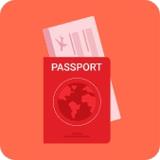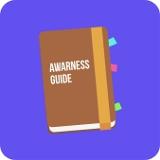

Germany Currency
- Introduction
- Understanding Germany currency
- Currency Exchange tips
- Tips for Getting the Best Exchange Rates
- Avoiding Scams
- Using Credit Cards & Debit cards
- ATMs in Germany
- Currency Conversion Apps & Tools
- Cultural Etiquette with Currency
- Emergency currency options
Germany is renowned for its rich history, picturesque landscapes, and vibrant cultural scene. It’s no surprise that the country attracts millions of tourists each year, including thousands of Indian travellers. Germany offers a mix of modern cities and charming towns, making it an appealing destination for all kinds of visitors. Planning a trip to Germany is relatively straightforward, but there are several key aspects to consider, such as booking flights, finding the perfect accommodation, and organising your itinerary. One crucial factor you mustn’t overlook is managing your finances, particularly when it comes to handling currency. In this article, we’ll cover everything you need to know about using money in Germany to ensure your trip goes smoothly.
Understanding Germany currency
Germany uses the Euro (€), which is shared by many countries in the European Union. When you're thinking of converting your money, it's good to know that the exchange rate can fluctuate daily. As of now, one Euro is approximately 90 Indian Rupees. This means if you have 100 Euros, you would get about 9,000 Rupees. It's always smart to check the latest rates before making any transactions, as they can change with market conditions. Keeping an eye on this can help you get the best value when converting your money.
1. Denominations - Coins and Banknotes
Germany uses the Euro (€). The coins are available in eight different denominations: 1 cent, 2 cents, 5 cents, 10 cents, 20 cents, 50 cents, 1 Euro, and 2 Euros. You’ll find that the smaller coins (cents) are used for minor purchases or giving exact change, while the 1 and 2 Euro coins are more frequently used for everyday transactions.
The banknotes are available in six denominations: 5, 10, 20, 50, 100, 200, and 500 Euros. You’ll probably use the smaller denominations, like 10s and 20s, for daily expenses such as meals or shopping. The larger notes, like 100 Euros and above, are less common for small purchases but might be handy for bigger expenses.
2. Exchange Services
When you need to exchange your Indian Rupees for Euros, you have a few options:
• Currency Exchange Offices
These are located at airports, train stations, and city centres. While convenient, they might offer lower rates due to service fees.
• Banks
Most banks provide currency exchange services with better rates compared to exchange offices. You might want to check the opening hours, as German banks typically operate from 9 AM to 4 PM.
3. ATMs and Banks
Using ATMs is one of the most convenient ways to get Euros. ATMs are widely available across Germany, and most accept international cards. Look for ATMs that belong to major banks like Deutsche Bank, Commerzbank, or Sparkasse. They usually offer better exchange rates and lower fees. When using your Indian debit or credit card, ensure it's enabled for international transactions. It’s also a good idea to notify your bank before you travel to avoid any issues with card usage abroad.
If you need to visit a bank, you’ll find that they offer a range of services beyond currency exchange. You can get traveller’s cheques, open a temporary account if you’re staying longer, or even get advice on the best financial practices while in Germany.
Did you know?
Did you know? Germany was one of the first countries in the Eurozone to adopt the euro as its official currency in 2002. The transition from the Deutsche Mark to the euro was a significant milestone in European economic integration.
Currency Exchange tips
Let’s talk about the best ways to exchange your money when you're travelling to Germany. Knowing where to go and what to look out for can help you get the most out of your buck and avoid any potential scams.
Where to Exchange?
1. Airports
Airports are super convenient for currency exchange, especially when you first arrive. However, they often have higher fees and less favourable rates. If you need a small amount of cash to get you started, it’s okay to use airport exchange services, but try not to rely on them for larger sums.
2. Banks
Banks are usually the safest option for exchanging money. They offer competitive rates and are reliable. Major banks in Germany, like Deutsche Bank and Commerzbank, provide currency exchange services. It's best to go during banking hours, typically from 9 AM to 4 PM.
3. Hotels
Some hotels offer currency exchange services. While this can be convenient, the rates are generally not as good as those you'll find at banks or authorised money changers. Use this option only if you’re in a pinch and need some quick cash.
4. Authorised Money Changers
These are specialised currency exchange providers found in city centres and popular tourist areas. They often offer better rates than airports and hotels. Make sure to check if they are authorised and legitimate before making any transactions. Look for clear signage and verify their credentials if necessary.
Tips for Getting the Best Exchange Rates
1. Compare Rates
It is best if you don’t settle for the first rate you see, this is because you can better rates after comparing rates at different places. A small difference in the exchange rate can make a big impact, especially if you’re exchanging a large amount of money.
2. Use ATMs Wisely
ATMs can be a good option for getting cash. Use ATMs belonging to major banks for better rates and lower fees. Avoid standalone ATMs in tourist areas as they might charge higher fees.
3. Avoid Dynamic Currency Conversion
When paying by card, you might be offered the choice to pay in your home currency (INR) instead of Euros. Always choose to pay in the local currency (Euros) to avoid hidden fees and poor exchange rates.
4. Know the Fees
Be aware of any service fees or commissions. Sometimes a slightly lower exchange rate with no fees can be better than a higher rate with high fees.
Avoiding Scams
1. Check the Calculations
Always double-check the calculations when exchanging money. Count your cash before leaving the counter to ensure you receive the correct amount.
2. Use Reputable Services
Try to stick to well-known and reputable exchange services and if you are unsure about a place, always refer to online websites and Google reviews before settling on the choice.
3. Be Wary of Street Exchangers
Avoid exchanging money with individuals on the street. They might offer attractive rates, but it’s risky and could lead to scams or counterfeit money.
Did you know?
Did you know? Euro banknotes have a unique design that features various architectural styles from different historical periods, but they do not represent real buildings. This is to avoid favouring any specific country within the Eurozone.
Using Credit Cards & Debit cards
If you're planning to use credit or debit cards during your trip to Germany, here are a few tips to help you steer through the payment scene smoothly.
Card Acceptance
1. Widely Accepted
Credit and debit cards are commonly accepted in Germany, especially in urban areas, shops, restaurants, and hotels. Visa and MasterCard are the most widely accepted, while American Express is less common but still usable in many places.
2. Check Card Compatibility
Before you travel, make sure your cards are enabled for international transactions. You can usually set this up by contacting your bank or through your banking app.
3. Chip and PIN
Germany primarily uses chip and PIN technology, so make sure your card has a chip and that you know your PIN. Contactless payments are also popular, so if your card supports this, you can just tap to pay.
Card Tips
1. Notify Your Bank
When you are travelling to Germany, it will be better for you if you inform your bank, about possible international transactions from your bank before you travel plans, to avoid your card being flagged for suspicious activity. This can help prevent any blocks or restrictions on your card while you’re abroad.
2. ATMs
Using your card at ATMs is a convenient way to get cash. Look for ATMs associated with major banks like Deutsche Bank or Commerzbank to get better rates and avoid high fees. Be cautious of standalone ATMs in tourist areas as they might have higher fees.
3. Dynamic Currency Conversion
When making a purchase, you might be asked if you want to pay in your home currency (INR) or Euros. Always choose Euros to get the best exchange rate and avoid additional conversion fees.
4. Keep an Eye on Your Statements
Regularly monitor your bank statements for any unfamiliar transactions. If you notice anything suspicious, contact your bank immediately.
5. Check Fees
Be aware of any foreign transaction fees your card might charge as these can vary depending on your card issuer, so it’s worth checking before you travel.
ATMs in Germany
Here are a few tips on how to use ATMs in Germany so you can handle your cash smoothly during your trip.
1. Widespread Availability
ATMs are pretty easy to find in Germany. You’ll spot them in most urban areas, near major shopping centres, train stations, and airports. Many banks have ATMs right outside their branches.
2. Bank Networks
You can use ATMs from major banks like Deutsche Bank, Commerzbank, or Sparkasse, for better rates and fewer fees. They usually offer good rates and are reliable. Avoid standalone ATMs in tourist-heavy areas as they might charge higher fees.
3. Language Options
Most ATMs offer multiple language options, including English, so look for the language setting at the beginning of the transaction to make things easier.
4. Chip and PIN
German ATMs use chip and PIN technology, so ensure your card has a chip and you know your PIN. You’ll need to enter your PIN to complete transactions.
5. Withdrawal Limits
Some ATMs might have limits on the amount you can withdraw per transaction or per day. If you need a large sum, you might need to make multiple transactions or find a different ATM.
6. International Fees
Be aware of any fees your bank might charge for international ATM withdrawals. Check with your bank before travelling to understand the costs.
7. Check for Skimmers
Inspect the ATM for any unusual attachments before inserting your card. Skimming devices can be used to steal card information.
8. Be Cautious
Always be mindful of your surroundings when using an ATM. Choose well-lit, secure locations, and be quick to complete your transaction to avoid drawing unnecessary attention.
Cool facts: Euro coins have a common side with a map of Europe, but the reverse side is unique to each country. For instance, German coins feature an image of the Brandenburg Gate, a symbol of German unity.
Currency Conversion Apps & Tools
If you're travelling and need to keep track of currency conversions, there are several handy apps and tools to help you out. Here’s a rundown of some popular ones you might find useful:
1. XE Currency Converter
This app is a go-to for many travellers. It provides live exchange rates and allows you to monitor up to 10 currencies at once. It's great for checking rates on the go and even has a built-in calculator to make conversions easy.
2. Currency Converter
This app provides accurate exchange rates and features a straightforward interface. It supports a wide range of currencies and offers historical data, which can be handy if you're keeping an eye on trends.
3. Easy Currency Converter
If you’re looking for a simple, no-fuss option, Easy Currency Converter is worth a look. It offers real-time rates and is easy to navigate. You can convert between multiple currencies with just a few taps.
4. Exchange Rates
This tool is excellent for those who want detailed currency information. It provides up-to-date exchange rates and historical data, helping you make informed decisions.
5. Currency Converter - Exchange
Known for its user-friendly design, this app offers both live and historical exchange rates. It’s great for travellers who need quick and reliable conversions while on the move.
6. My Currency Pro-Converter
This app offers a sleek design and real-time updates. It supports a wide range of currencies and is particularly useful if you’re frequently converting between different money types.
7. All Currency Converter
True to its name, this app supports a wide variety of currencies and provides live updates. It’s handy if you’re dealing with multiple currencies during your travels.
Cultural Etiquette with Currency
When you’re travelling, understanding the local etiquette with money can make your interactions smoother and more respectful. Here are some tips on handling currency in a culturally sensitive way:
- In Germany, while cards are widely accepted, many smaller establishments, like local cafes or markets, prefer cash. It’s a good idea to carry some euros for these situations.
- In Germany, tipping is appreciated but not mandatory. It's common to leave a small tip of 5-10% in restaurants. Rather than calculating a percentage, many people round up the bill to the nearest euro. For example, if your bill is €18.50, rounding it up to €20 is customary and acceptable.
- When handing over cash, try to use both hands or at least extend your hand fully. This gesture shows respect and politeness. If you’re receiving change, take it with both hands or make sure to show appreciation.
- If you’re paying with a card, it’s better to leave your tip in cash directly to the waiter or service staff. This ensures they receive it in full, as some establishments might not pass on card tips in full.
- While it’s rare, being cautious about counterfeit notes is wise. If a note looks suspicious, politely ask the cashier to check it again.
- Displaying large amounts of money can attract unwanted attention. Keep your cash discreet and only take out what you need when paying.
- Different regions may have specific customs regarding money so observe how locals handle transactions and follow their lead to ensure you’re aligning with local etiquette.
Cool facts: Germany’s euro coins are minted in five different locations across the country: Berlin, Munich, Stuttgart, Karlsruhe, and Hamburg. Each location has its mint mark, which you can find on the coins.
Emergency currency options
If you find yourself in a tight spot with cash while abroad, there are a few emergency options to consider. First, look for nearby ATMs to withdraw cash, but keep an eye out for any international fees your bank might charge. If you’re in a pinch, try visiting local banks, as they might offer emergency cash services, though you will need to provide identification. Another handy option is to use a travel money card, which can be preloaded with funds and used like a debit card. Additionally, services like Western Union or MoneyGram can help you receive funds quickly from home. These options will ensure you’re covered even if you run low on cash unexpectedly.
Ensure a worry-free trip to Germany with comprehensive protection.
KNOW MORE







 Health Insurance
Health Insurance  Travel Insurance
Travel Insurance  Car Insurance
Car Insurance  Cyber Insurance
Cyber Insurance  Critical Illness Insurance
Critical Illness Insurance
 Pet Insurance
Pet Insurance
 Bike/Two Wheeler Insurance
Bike/Two Wheeler Insurance  Home Insurance
Home Insurance  Third Party Vehicle Ins.
Third Party Vehicle Ins.  Tractor Insurance
Tractor Insurance  Goods Carrying Vehicle Ins.
Goods Carrying Vehicle Ins.  Passenger Carrying Vehicle Ins.
Passenger Carrying Vehicle Ins.  Compulsory Personal Accident Insurance
Compulsory Personal Accident Insurance  Travel Insurance
Travel Insurance  Rural
Rural 










